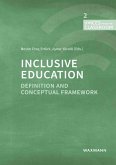Virtual exchange has experienced a significant development over the last twenty years. Given its multiple benefits, this innovative pedagogy has attracted instructors and researchers from all over the world who are interested in integrating this practice into their classrooms. However, implementing virtual exchange is not without its challenges, and attaining sustained collaborative interaction remains one of those challenges. To support such interaction, interpersonal factors such as identity, rapport, and trust are essential. The development of these factors relies heavily on the participants' attitudes and how they choose to reflect them in their intercultural dialogue. Given the scarcity of studies that investigate the impact of students' attitudes and emotions in telecollaborative encounters, this volume aims to analyze the use of attitudinal resources in virtual interaction. By examining a range of educational settings, applying different theoretical approaches, presenting a variety of methodologies, and using different tools, the writers in this volume provide a rich picture of how participants can contribute to creating third spaces in which they feel safe exploring diversity and identity, and engaging with difference. By presenting different scenarios, technologies, and tasks, Understanding Attitude in Intercultural Virtual Communication provides insights into the factors that affect students' dynamics in these exchanges. These contributions will encourage readers to continue examining attitude in the ever-growing multimodal telecollaborative world.







